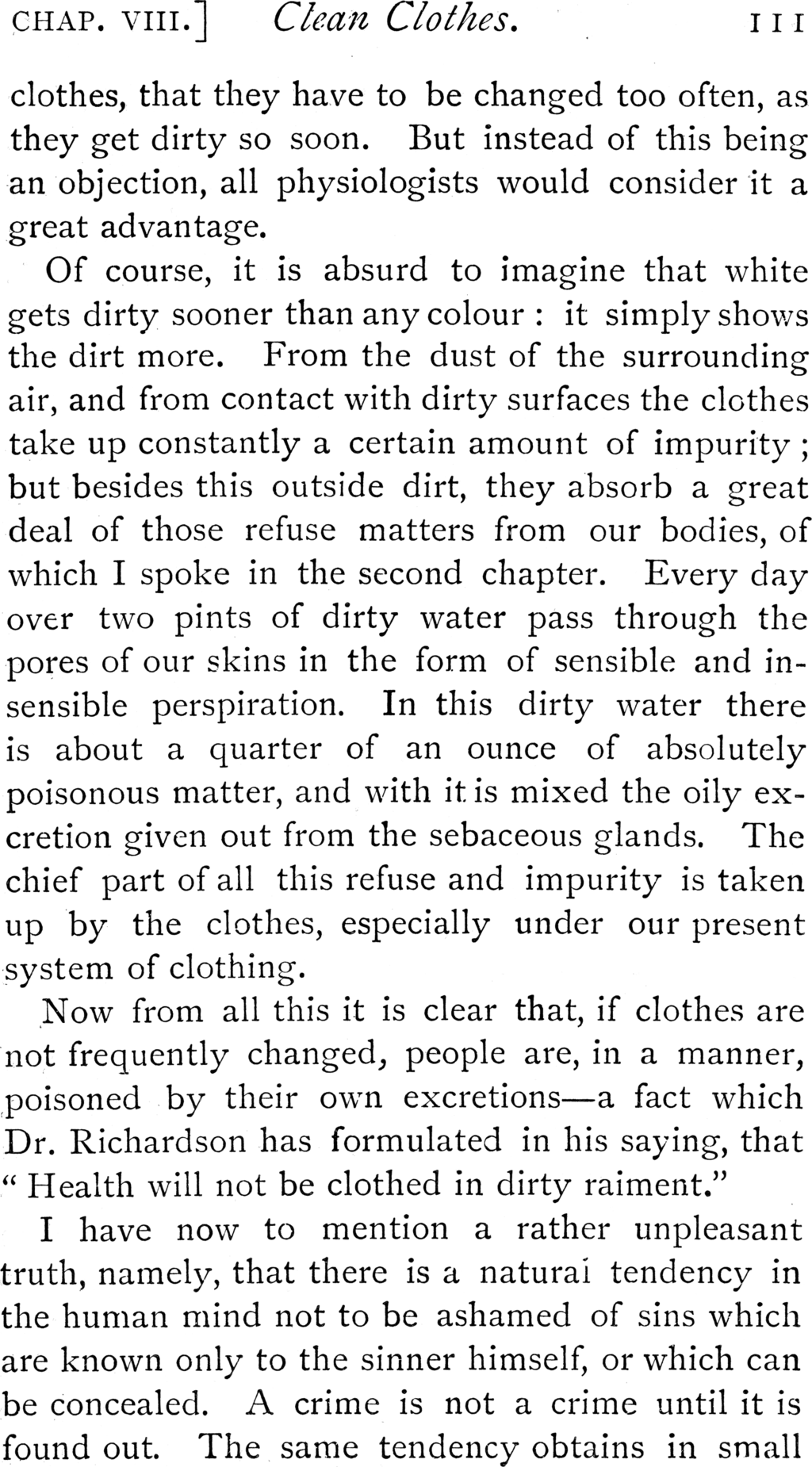clothes, that they have to be changed too often, as they get dirty so soon. But instead of this being an objection, all physiologists would consider it a great advantage.
Of course, it is absurd to imagine that white gets dirty sooner than any colour: it simply shows the dirt more. From the dust of the surrounding air, and from contact with dirty surfaces the clothes take up constantly a certain amount of impurity; but besides this outside dirt, they absorb a great deal of those refuse matters from our bodies, of which I spoke in the second chapter. Every day over two pints of dirty water pass through the pores of our skins in the form of sensible and insensible perspiration. In this dirty water there is about a quarter of an ounce of absolutely poisonous matter, and with it is mixed the oily excretion given out from the sebaceous glands. The chief part of all this refuse and impurity is taken up by the clothes, especially under our present system of clothing.
Now from all this it is clear that, if clothes are not frequently changed, people are, in a manner, poisoned by their own excretions—a fact which Dr. Richardson has formulated in his saying, that "Health will not be clothed in dirty raiment."
I have now to mention a rather unpleasant truth, namely, that there is a natural tendency in the human mind not to be ashamed of sins which are known only to the sinner himself, or which can be concealed. A crime is not a crime until it is found out. The same tendency obtains in small
